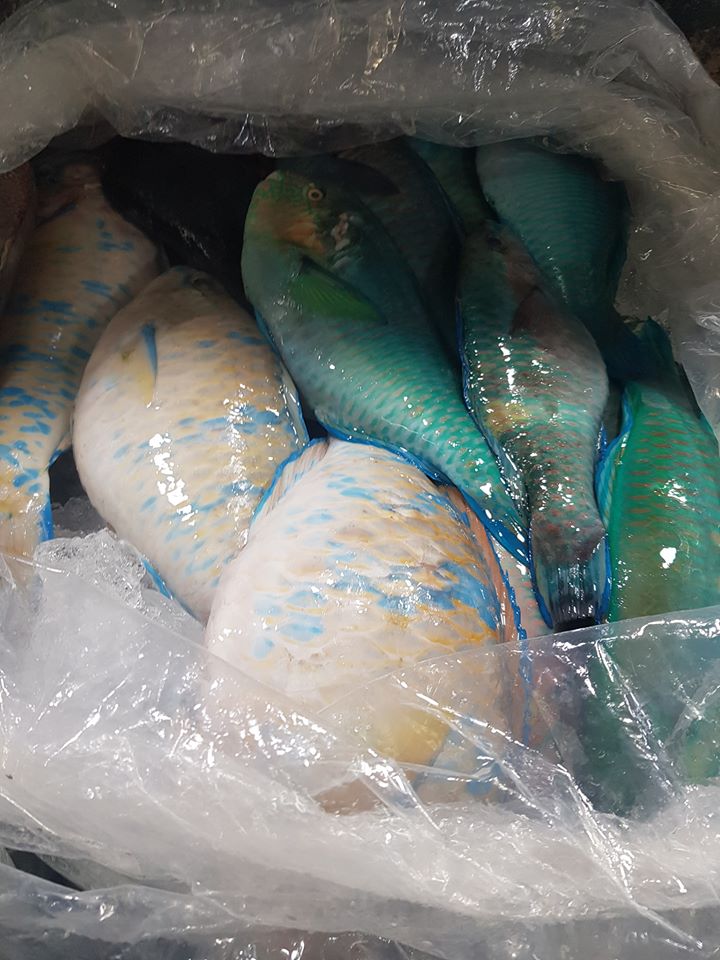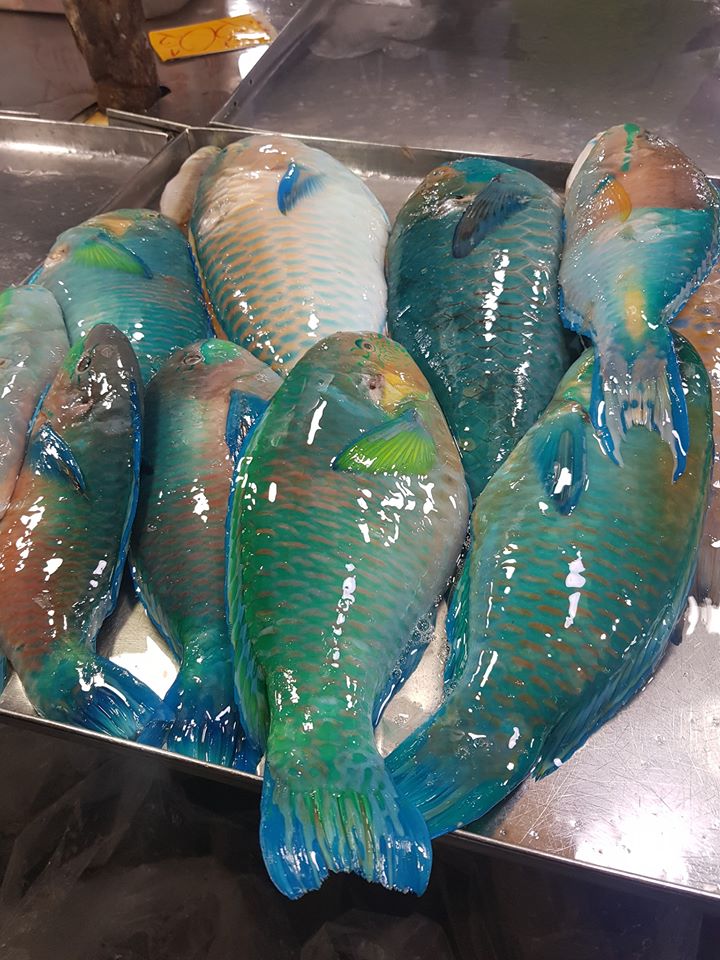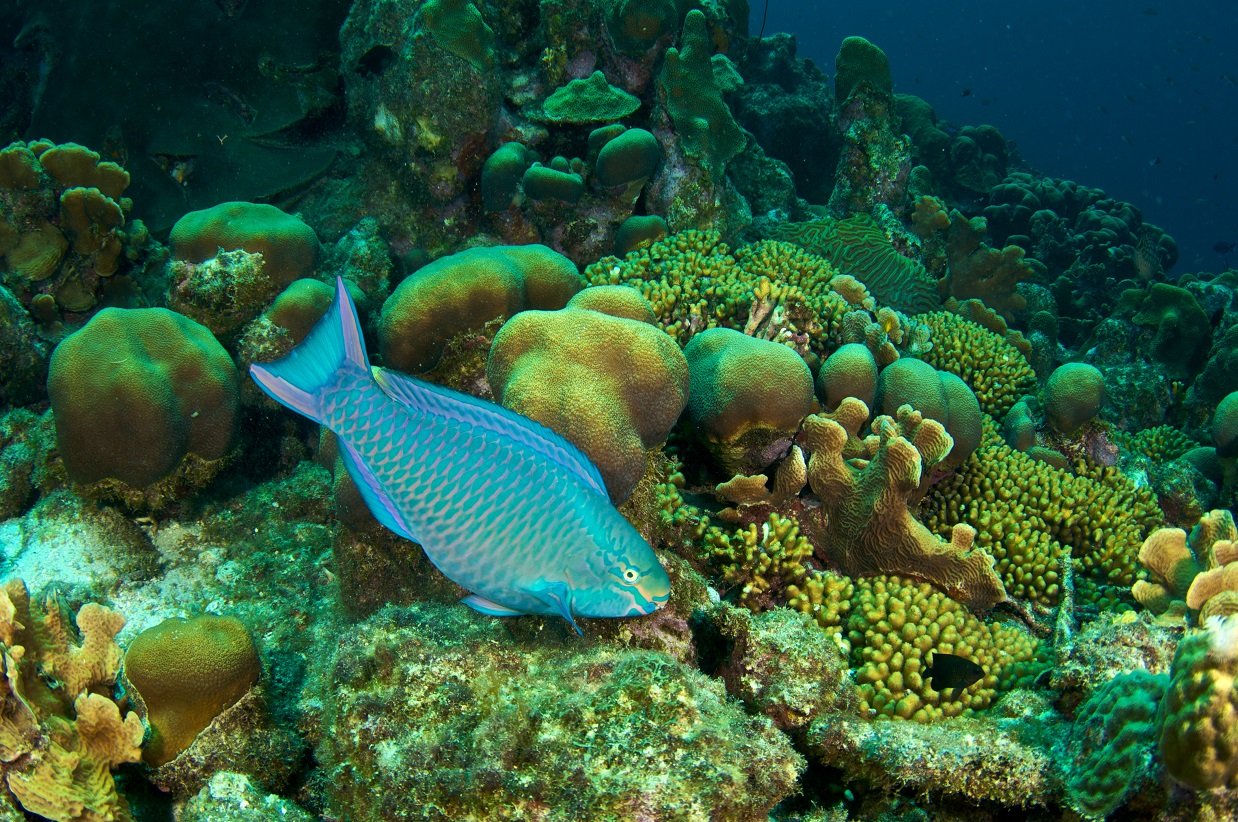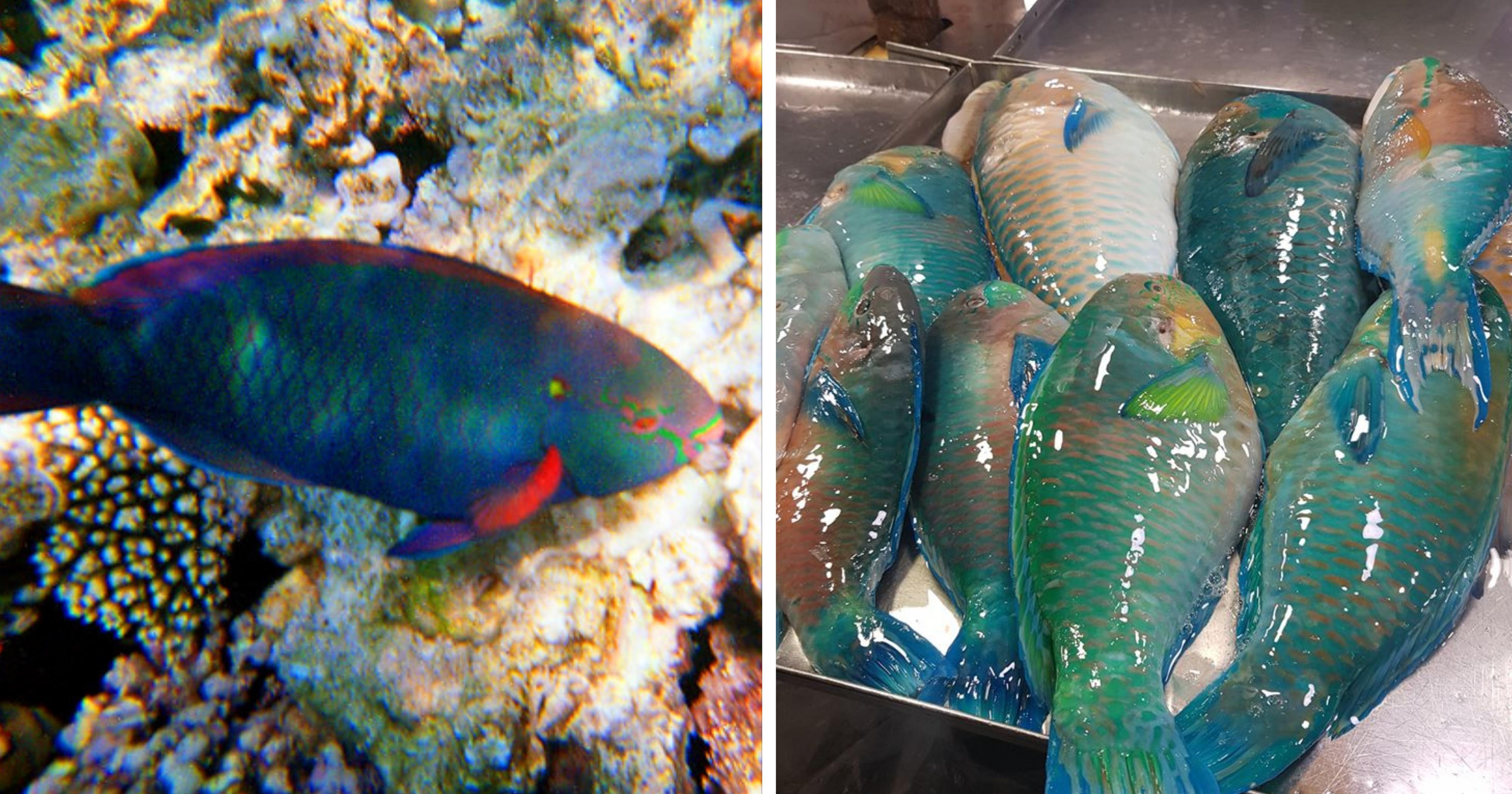Parrot fish is sold in markets around the world as seafood caught from the oceans.
According to a Facebook post by one woman, Reg O. Carlotta, parrot fish is available in the Philippines:
 Photo by Reg O. Carlotta
Photo by Reg O. Carlotta
 Photo by Reg O. Carlotta
Photo by Reg O. Carlotta
But this sight of parrot fish being harvested from the ocean for food prompted Carlotta to write the Facebook post that has since been shared a staggering 203,000 times since April 15, 2019.
Carlotta's post explains why parrot fish is important to our oceans -- specifically, to the coral reefs.
Saving the coral reefs
Citing an online source, Carlotta asserted that parrot fish eat the algae on coral reefs.
A blogpost on National Geographic added that the species also grazes on seaweed and sponges found on and around the reef.
Sponges are known for competing with the corals for growth.
Although corals and certain algae maintain a symbiotic relationship, too much of algae and sponges "smother" the coral, leading to its decline.
In short, the fish functions as a "cleaner" of the coral reefs.
 A parrot fish eating algae. Photo by Stanley Bysshe
A parrot fish eating algae. Photo by Stanley Bysshe
According to the BBC, scientists have proposed using parrot fish to save the Caribbean coral reefs, which has seen more than 50 percent decline since the 1970s.
Besides the overfishing of herbivores, including parrot fish, the problem is compounded by climate change.
Furthermore, parrot fish play an important role in sand distribution.
Parrot fish poop up to 90kg of it per year, although Carlotta's source puts this figure much higher at 320kg.
The fine sand is usually made up of ground up dead corals -- part of the fish's diet.
However, parrot fish do still eat live corals, and when that happens, coral deaths occur.
But that is a rare occurrence, and the damage is apparently negligible compared to the benefits they bring.
Unfortunately, parrot fish can also be found in Singapore's markets, and sometimes even on the menu in Singapore.
Thankfully, it's not a common sight.
Top image via Reg O. Carlotta/Facebook and ollie harridge/Flickr
If you like what you read, follow us on Facebook, Instagram, Twitter and Telegram to get the latest updates.
